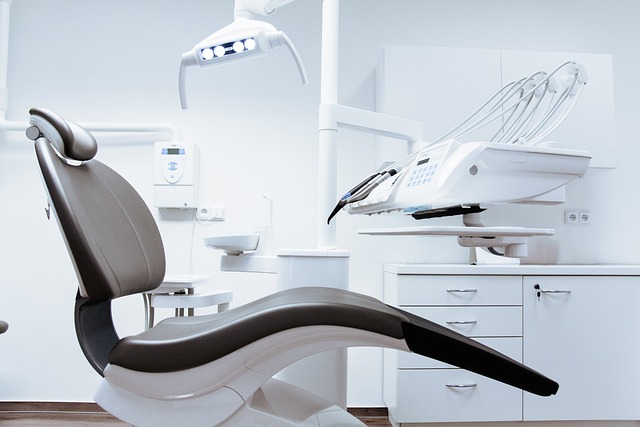Affordable Orthodontics: How Much Does an Orthodontic Retainer Cost?
Welcome to the world of orthodontics, where confident smiles are crafted and perfected. If you’ve ever wondered about the cost of an orthodontic retainer, you’re in the right place. In this article, we will delve into the realm of affordable orthodontics, exploring the factors that influence retainer costs and providing you with a clear understanding of what to expect. Brace yourself for an informative journey that will leave you equipped with the knowledge you need to make informed decisions about your dental health. Let’s get started!
1. Understanding the Importance of Orthodontic Retainers
Orthodontic retainers are an essential component of orthodontic treatment. After braces are removed, the teeth tend to shift back to their original positions. Retainers help prevent this movement, ensuring that the teeth remain in their new, corrected positions. It is crucial to understand the importance of wearing retainers as instructed by your orthodontist to maintain the results achieved through braces.
Retainers are custom-made devices that are designed to fit your mouth and teeth perfectly. They are typically made of clear plastic or metal wires. These devices work by exerting gentle pressure on the teeth, keeping them in place. By wearing retainers consistently, you can avoid the need for additional orthodontic treatment in the future.
- Preventing relapse: After braces are removed, your teeth need time to stabilize in their new positions. Retainers play a crucial role in preventing relapse, which is when the teeth shift back to their original misaligned positions. Wearing retainers as instructed by your orthodontist helps maintain the desired alignment and prevents any regression.
- Maintaining oral health: Properly aligned teeth are easier to clean and maintain. By wearing retainers, you can ensure that your teeth remain in their corrected positions, allowing for effective oral hygiene practices. This reduces the risk of dental issues such as tooth decay and gum disease, promoting overall oral health.
Retainers are a vital part of the orthodontic process and should be taken seriously. They help preserve the results achieved through braces and ensure long-lasting, beautiful smiles. By and diligently wearing them as instructed by your orthodontist, you can maintain the benefits of your orthodontic treatment and enjoy a confident, healthy smile for years to come.

2. Factors Affecting the Cost of Orthodontic Retainers
There are several key factors that can impact the cost of orthodontic retainers. It is important to consider these factors when budgeting for your orthodontic treatment:
1. Type of Retainer: There are different types of orthodontic retainers available, including removable retainers, fixed retainers, and clear aligner retainers. Each type comes with its own cost, as well as pros and cons. Removable retainers, for example, are typically less expensive than clear aligner retainers but may require more maintenance.
2. Complexity of the Case: The complexity of your orthodontic case can also affect the cost of your retainers. If you have a more severe misalignment or bite issue, it may require additional time, materials, and expertise to create and adjust your retainers, resulting in a higher cost.

3. Exploring Affordable Options for Orthodontic Retainers
When it comes to orthodontic retainers, affordability is an important factor to consider. Fortunately, there are several options available that won’t break the bank. Here are some affordable options to explore:
– Essix Retainers: These clear, removable retainers are a popular choice among patients due to their affordability and effectiveness. They are custom-made to fit your teeth and are nearly invisible when worn.
- Hawley Retainers: Another cost-effective option, Hawley retainers are made of a combination of metal wires and acrylic. They can be easily adjusted and are durable, making them a long-lasting choice.
– Clear Aligner Retainers: These retainers are similar to clear aligners used in orthodontic treatment. They are custom-made to fit your teeth and are removable, making them convenient to wear. Clear aligner retainers are a great option for those who want a discreet and affordable retainer.

4. Comparing Prices: How Much Does an Orthodontic Retainer Typically Cost?
When it comes to orthodontic retainers, the cost can vary depending on various factors such as the type of retainer, the region you are in, and the specific orthodontist you visit. While it’s difficult to provide an exact figure, it’s helpful to have a general idea of the price range you can expect.
Here is an overview of the typical costs associated with orthodontic retainers:
- Hawley Retainers: These traditional retainers are made of acrylic and metal wires. They usually range from $200 to $500.
- Essix Retainers: These clear, removable retainers are made of a thin plastic material. They typically cost between $300 and $700.
- Permanent Retainers: These are metal wires bonded to the back of the teeth to prevent them from shifting. The cost of permanent retainers can range from $500 to $1,200.
It’s important to keep in mind that these prices are just estimates and can vary. Factors such as the complexity of your case, additional procedures required, and the location of the orthodontist’s practice can influence the final cost. It’s always recommended to consult with an orthodontist for an accurate assessment of your specific needs and associated costs.

5. Tips for Finding Cost-Effective Orthodontic Retainer Solutions
When it comes to finding cost-effective orthodontic retainer solutions, there are a few tips that can help you save money without compromising on the quality of your treatment. Here are some key suggestions to keep in mind:
- Explore different options: Don’t settle for the first retainer solution you come across. Take the time to research and compare different options available to you. This includes considering both traditional and more modern alternatives, such as clear retainers or removable aligners. Assessing the pros and cons of each option will allow you to make an informed decision.
- Seek professional advice: Consulting with an experienced orthodontist is crucial in finding a cost-effective retainer solution that suits your specific needs. They can provide valuable guidance on the most suitable type of retainer for your orthodontic treatment. Additionally, an orthodontist can recommend reputable suppliers or clinics that offer competitive pricing without compromising on quality.
Furthermore, it is important to consider the following:
- Insurance coverage: Check if your dental or health insurance plan covers orthodontic treatments, including retainers. Understanding your insurance coverage and any limitations can help you navigate the cost aspect more effectively.
- Payment plans or financing options: Many orthodontic clinics offer flexible payment plans or financing options to help make the cost of retainers more manageable. Inquire about these possibilities to find a solution that fits your budget.
By following these tips, you can find a cost-effective orthodontic retainer solution that meets your needs, ensuring a healthy and confident smile for years to come.
6. Unveiling Hidden Expenses: Additional Costs Associated with Orthodontic Retainers
When considering orthodontic treatment and the use of retainers, it is essential to be aware of the additional costs that may arise. These hidden expenses are often overlooked but can significantly impact the overall cost of treatment. By understanding these additional costs upfront, you can make informed decisions and plan accordingly.
1. Replacement retainers: Retainers are an essential part of orthodontic treatment to maintain the alignment of your teeth. However, they are prone to damage or loss, requiring replacement. It is crucial to factor in the cost of replacement retainers, which can range from $100 to $300 per retainer. Depending on the type of retainer prescribed by your orthodontist, the replacement frequency may vary. Some retainers may last for several years, while others may need to be replaced more frequently.
2. Cleaning and maintenance products: To ensure the longevity and effectiveness of your retainers, it is necessary to invest in proper cleaning and maintenance products. These include specialized cleaning solutions, retainer cases, and brushes. While these costs may seem minimal, they can add up over time. On average, expect to spend around $50 to $100 annually on cleaning and maintenance products for your retainers.
7. Making Informed Decisions: Choosing the Right Orthodontic Retainer within Your Budget
When it comes to choosing the right orthodontic retainer, it is important to consider your budget. Fortunately, there are several options available that cater to different price ranges. By understanding your options and making an informed decision, you can find a retainer that not only fits your budget but also meets your orthodontic needs.
Here are some factors to consider when choosing an orthodontic retainer within your budget:
- Type of Retainer: There are different types of retainers available, such as Hawley retainers, clear retainers, and fixed retainers. Each type varies in cost, durability, and appearance. Research each type to determine which one aligns with your budget and preferences.
- Quality: While cost is a crucial factor, it is essential to prioritize the quality of the retainer. Opting for a lower-priced retainer may compromise its effectiveness and durability. Look for high-quality materials and reputable brands that offer a balance between affordability and reliability.
- Longevity: Consider the lifespan of the retainer. Some retainers may require frequent replacement, which can add to the overall cost in the long run. Look for retainers that are known for their durability and longevity to ensure you get the most value for your money.
By considering these factors and exploring different options, you can make an informed decision when choosing an orthodontic retainer that fits within your budget. Remember to consult with your orthodontist, who can provide expert advice tailored to your specific needs and financial constraints.
Frequently Asked Questions
Q: How much does an orthodontic retainer cost?
A: The cost of an orthodontic retainer can vary depending on several factors, such as the type of retainer, the provider, and any additional services required. However, on average, the cost can range from $300 to $600.
Q: What are the different types of orthodontic retainers available?
A: There are primarily three types of orthodontic retainers: traditional wire retainers, clear retainers, and removable retainers. Each type has its own advantages and cost implications.
Q: Is there a significant price difference between the various types of retainers?
A: The cost of different types of retainers can vary. Traditional wire retainers are generally more affordable, ranging from $300 to $500. Clear retainers, often made of transparent plastic, may cost slightly more, ranging from $400 to $600. Removable retainers, which offer added convenience, can be priced between $500 and $700.
Q: Are there any additional costs associated with orthodontic retainers?
A: In addition to the retainer cost, there may be additional expenses to consider. These can include fees for initial consultations, X-rays, dental impressions, and adjustments. It is advisable to discuss these potential costs with your orthodontist beforehand to have a clear understanding of the overall expenses involved.
Q: Are orthodontic retainers covered by insurance?
A: In some cases, orthodontic retainers may be partially covered by dental insurance plans. However, coverage varies depending on the insurance provider and policy limitations. It is recommended to contact your insurance company to determine the extent of coverage for orthodontic retainers.
Q: Can I purchase an orthodontic retainer without a prescription from my orthodontist?
A: It is strongly advised against purchasing orthodontic retainers without a prescription from a qualified orthodontist. A professional evaluation is crucial to ensure that the retainer fits properly and provides the desired results. Buying retainers without professional guidance may lead to ineffective treatment or potential oral health issues.
Q: Are there any alternatives to orthodontic retainers for maintaining teeth alignment?
A: Yes, there are alternatives to orthodontic retainers. Some individuals may opt for permanent retainers, which are bonded to the back of the teeth. Another option is clear aligners, such as Invisalign, which can be used to maintain teeth alignment without the need for traditional retainers. However, the cost and suitability of these alternatives should be discussed with an orthodontist.
Q: How long does an orthodontic retainer typically last?
A: The lifespan of an orthodontic retainer can vary depending on individual circumstances. On average, retainers are expected to last between two to three years. However, with proper care and regular maintenance, some retainers can last even longer.
Q: Can I replace a lost or damaged retainer without incurring the full cost again?
A: In most cases, if a retainer is lost or damaged, it will need to be replaced. However, the cost of replacement may not be as high as the initial cost. It is recommended to contact your orthodontist to discuss the options available and associated costs for replacement retainers.
Q: What steps can I take to ensure the longevity of my orthodontic retainer?
A: To extend the lifespan of your orthodontic retainer, it is important to follow proper care instructions provided by your orthodontist. This includes regular cleaning, avoiding exposure to excessive heat or pressure, and storing the retainer in a protective case when not in use. Regular check-ups with your orthodontist will also help identify any issues early on and ensure the retainer is functioning effectively.
In Retrospect
In conclusion, understanding the cost of orthodontic retainers is crucial for anyone seeking affordable orthodontic care. Here are the key takeaways:
1. Orthodontic retainers are an essential part of maintaining the results achieved through braces or other orthodontic treatments. They help prevent teeth from shifting back to their original positions.
2. The cost of orthodontic retainers can vary depending on several factors, including the type of retainer, the complexity of the case, and the geographical location.
3. Traditional wire retainers tend to be more affordable compared to newer alternatives like clear plastic retainers or lingual retainers.
4. Insurance coverage for orthodontic retainers may vary, so it is important to check with your insurance provider to understand what costs will be covered.
5. Orthodontists often offer payment plans or financing options to make orthodontic retainers more affordable for patients.
6. It is worth noting that the cost of orthodontic retainers should not be the sole determining factor in choosing a provider. Quality of care, experience, and reputation should also be considered.
By being informed about the cost of orthodontic retainers and exploring various options, you can make a confident decision that suits your budget and ensures the long-term success of your orthodontic treatment. Remember to consult with your orthodontist to get a personalized and accurate estimate tailored to your specific needs.






